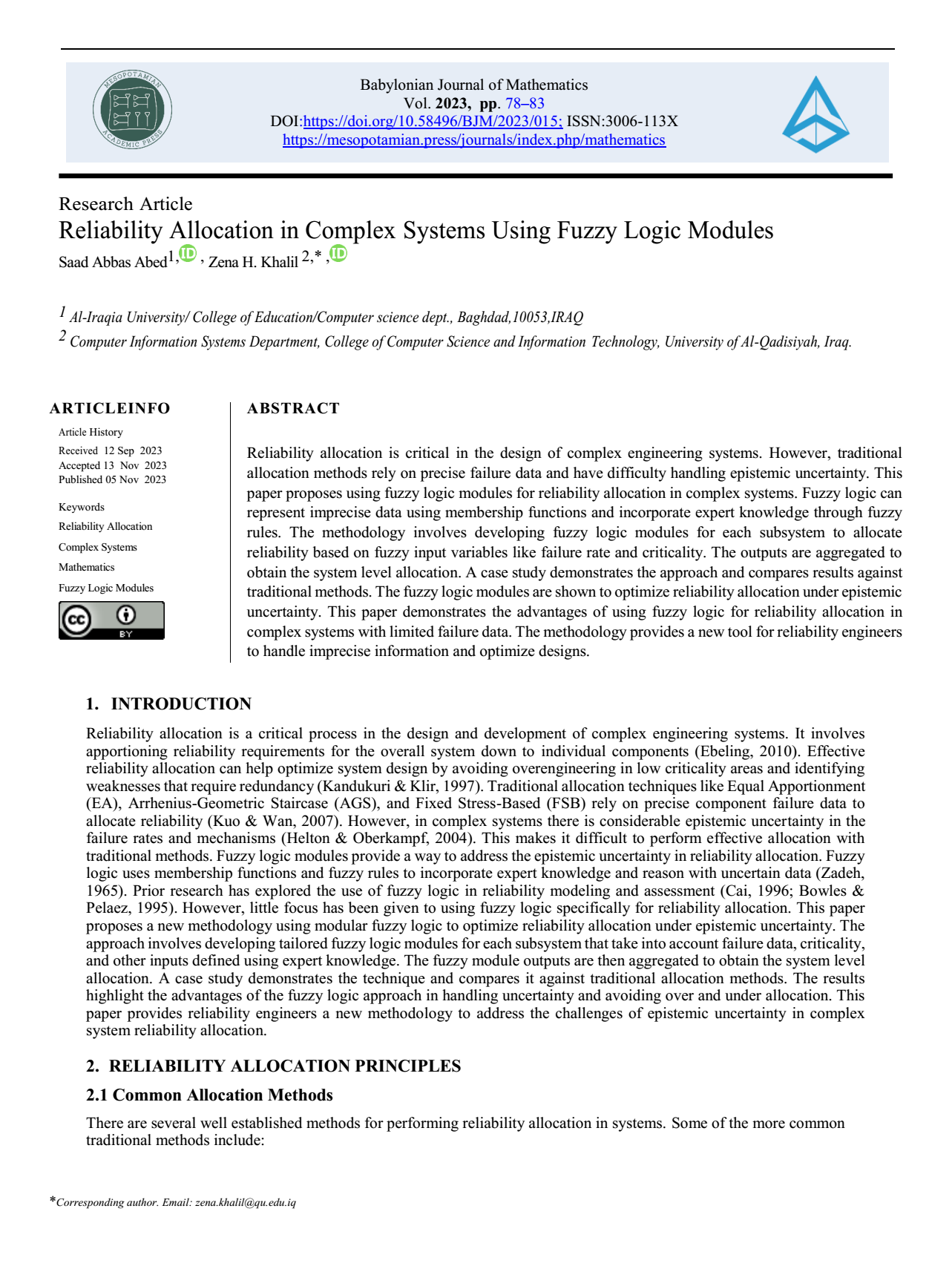Reliability Allocation in Complex Systems Using Fuzzy Logic Modules
Main Article Content
Abstract
Reliability allocation is critical in the design of complex engineering systems. However, traditional allocation methods rely on precise failure data and have difficulty handling epistemic uncertainty. This paper proposes using fuzzy logic modules for reliability allocation in complex systems. Fuzzy logic can represent imprecise data using membership functions and incorporate expert knowledge through fuzzy rules. The methodology involves developing fuzzy logic modules for each subsystem to allocate reliability based on fuzzy input variables like failure rate and criticality. The outputs are aggregated to obtain the system level allocation. A case study demonstrates the approach and compares results against traditional methods. The fuzzy logic modules are shown to optimize reliability allocation under epistemic uncertainty. This paper demonstrates the advantages of using fuzzy logic for reliability allocation in complex systems with limited failure data. The methodology provides a new tool for reliability engineers to handle imprecise information and optimize designs.
